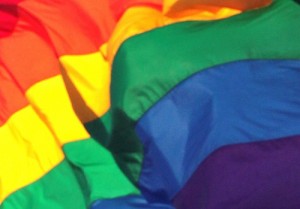Free Speech and Gay Marriage
October 14th, 2015
Ever since the Supreme Court’s decision came down in favor of gay marriage (which can now be included fully in the more traditional word ‘marriage’), the news has been full of stories of individuals practicing their religion in very public ways. While attaching justification phrases similar to “protecting religion,” “exercising a right,” or “defending against tyranny,” some modern Christians have resorted to very public protestations of their faith that include the exclusion of the LGBTQ community or filing lawsuits for every perceived slight. An arguably unexpected side effect of the ‘fight’ between anti-gay religious teachings and anti-discrimination laws has been the utter confusion of the leaders of many public institutions. Typically when this occurs, the law is unsettled or confusing due to conflicting court decisions or ambiguous statutory text. In the case of the religious freedom fight, however, it is possible that it is neither; that the law on the topic of what is and isn’t protected by the First Amendment has been settled for years.
The Supreme Law of the Land
The Constitution of the United States of America has been the ultimate “user’s guide to the American way” since its inception. It is for this reason that it is still amazing how constitutional disputes still rage in our court system. One might think that after 200 years, the meaning of the 4,400 words of the document would be clear. However, as a ‘living document’ it continues to adapt to serve our country through centuries of technological and social change.
That said, with regard to the issue of free speech, the Supreme Court has drawn a fairly bright line between what is and is not considered protected religious speech. In its decision in Board of Education v. Mergens (1990), the majority of the Court found that the Establishment Clause forbids “government speech endorsing religion,” and the other two clauses (Free Speech and Free Exercise) protect “private speech endorsing religion.”
So, what’s the problem?
If the line has been drawn so clearly by the highest court in the land with regard to the highest authority in American law, why are individuals still running afoul of the First Amendment? Take for example, the plethora of city and county clerks and their supporters who have recently come out “in favor of religious freedom” by refusing to issue marriage licenses to anyone because a gay or lesbian couple may obtain one. In their minds, they may believe that they are no longer discriminating because they are treating all couples the same in their denial of services. However, such schoolyard tactics of “I’m taking my ball and going home” merely because Sally and Susan wanted to play too are not supposed to bleed into the proper functioning of government. How much clearer can it be that the city clerk performing the duties of her position as a government official is participating in “government speech” while at work, regardless of what her “private speech” at home says? The couples who are being denied the services of their tax-dollar supported government likely do not care whether the clerk’s private speech carries an anti-gay message, so long as while he or she is at work her government speech does not carry any religious message at all.
An unnecessary quagmire
This issue, along with many involving religion, seems to the be next hot topic in the United States’ courts. While to some the outcome may seem inevitable, others will continue to “protect their freedoms” all the way to the Supreme Court if necessary. As they make their journey, Universal Life Church Case Law will continue its mission to monitor their progress and report on any changes to the current state of law and religion.
Photo Credit: torbakhopper via Compfight cc


